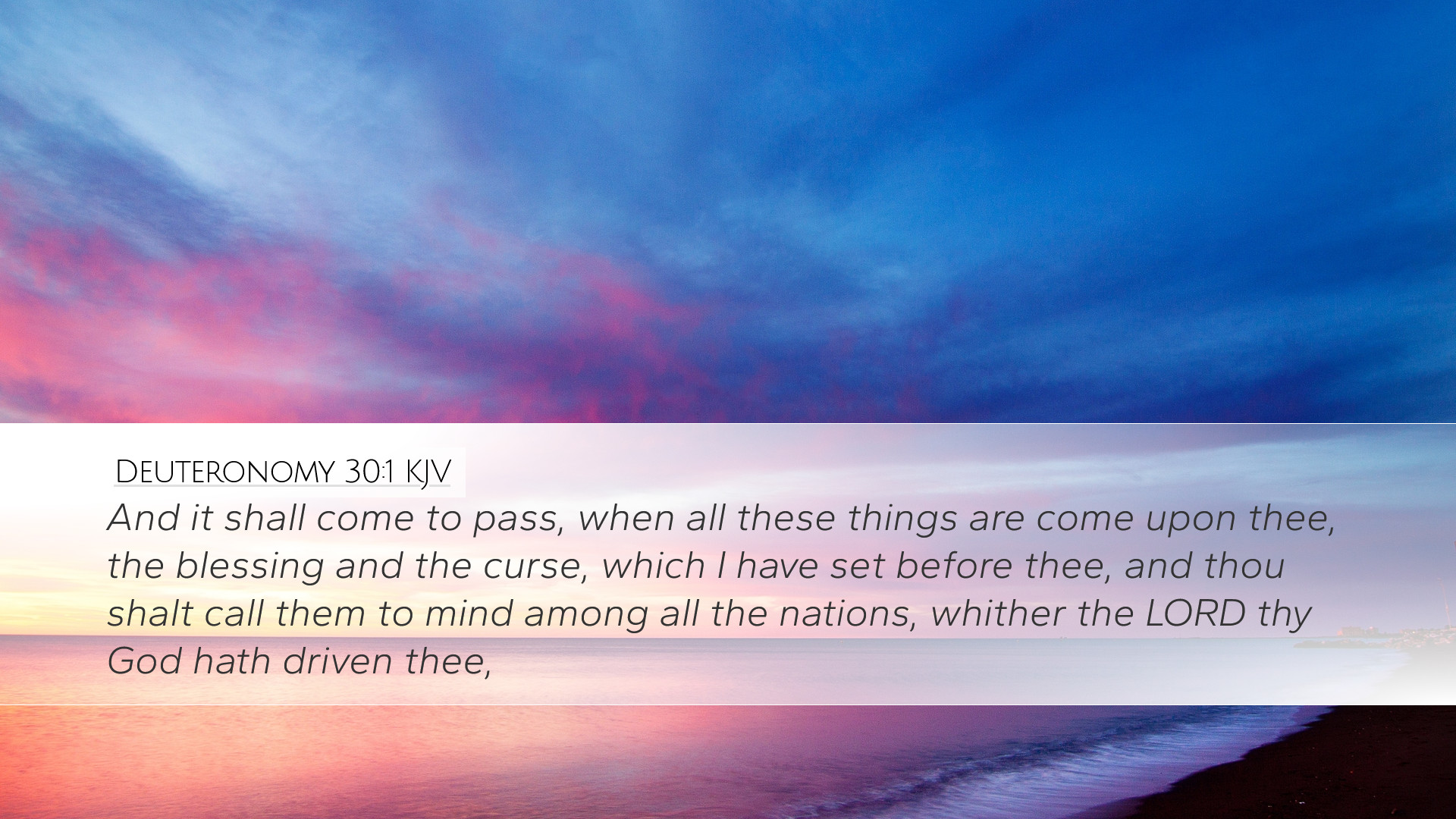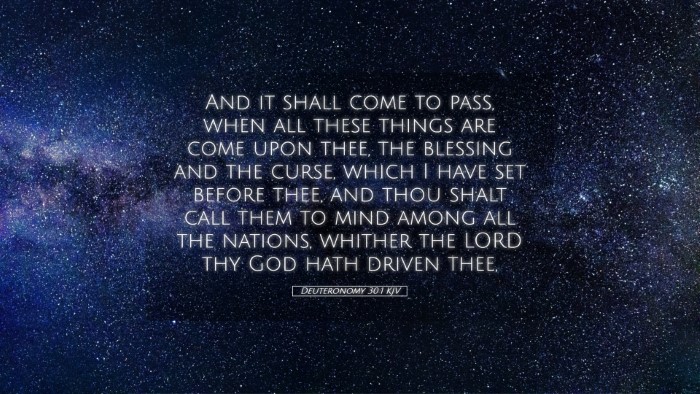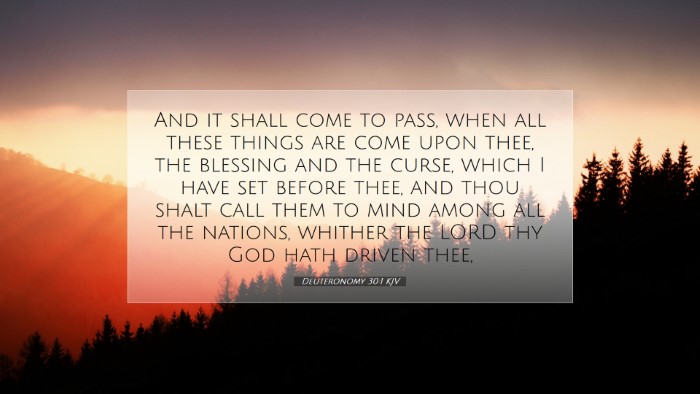Commentary on Deuteronomy 30:1
Bible Verse: "And it shall come to pass, when all these things are come upon thee, the blessing and the curse, which I have set before thee, and thou shalt call them to mind among all the nations, whither the Lord thy God hath driven thee," (Deut. 30:1, KJV).
This pivotal verse encapsulates the promise and warning given by God to His people through Moses. It emphasizes Israel's response to God's covenant and the consequences of obedience and disobedience.
Overview
This verse is found in the context of Moses' farewell address to the Israelites, reflecting both on their past and future. The blessings and curses refer to the consequences articulated throughout the book of Deuteronomy, acting as both a reminder and a call to repentance.
Interpretative Insights
- Matthew Henry's Commentary:
Henry emphasizes the comprehensive nature of the blessings and curses, linking them to the covenantal faithfulness of God. He notes that the call to remember implies a future time when the Israelites would reflect on their covenant relationship with God while in exile.
He poignantly remarks on how remembrance is not merely an act of mental recall but an emotional and spiritual exercise that engages the heart and mind. This verse acts as both a warning and an encouragement, urging the people to acknowledge their waywardness and God's unchanging nature.
- Albert Barnes’ Notes:
Barnes elucidates the significance of the phrase "when all these things come upon thee." He argues that the future fulfillment of both blessings (from obeying God's commands) and curses (from disobedience) compels a keen introspection among the Israelites.
Furthermore, he comments on the phrase "call them to mind" as an essential act of self-reflection and repentance. Barnes connects this to the overarching narrative of Israel, highlighting that this moment of realization is pivotal for restoration and reconciliation with God.
- Adam Clarke's Commentary:
Clarke provides a thorough analysis of the text, positing that the conditions of the blessings and curses are implicit in the covenant. He highlights a profound theological insight: that God's actions are tied to the people's fidelity to Him.
Clarke emphasizes that the verse serves as an affirmation of God's mercy, revealing that even amid exile and distress, there is a pathway back to Him. He encourages readers to see the divine call not merely as a historical event but also as an eternal truth applicable in every believer's journey.
Thematic Applications
- The Importance of Remembrance:
The call to "call them to mind" is a significant theme. It invites believers to reflect regularly on God's blessings and the consequences of sin. In today’s context, this is crucial for personal accountability in one's spiritual walk.
- Divine Sovereignty and Human Responsibility:
This verse illustrates the balance between God's sovereignty (enacting blessings and curses) and human agency (the choice to obey or disobey). The interplay between these elements teaches that while God is sovereign, human response plays an integral role in their covenant relationship.
- Restorative Potential:
As noted by Clarke, there remains an opportunity for restoration even in the depths of despair. This concept is monumental, as it reassures believers that regardless of circumstances, God offers redemption and a chance to return to Him.
Conclusion
Deuteronomy 30:1 serves as a timeless reminder of God’s overarching plan for His people, intertwined with calls for responsiveness to divine will. The theological insights provided by respected commentaries offer a multidimensional perspective on the verse, encouraging Reflection, recognition of God’s faithfulness, and the pathway to restoration.
As pastors, students, theologians, and scholars reflect on this passage, they are invited to grapple with its implications deeply—imbuing their lives and ministries with the weight of divine counsel and the hope of redemption.


